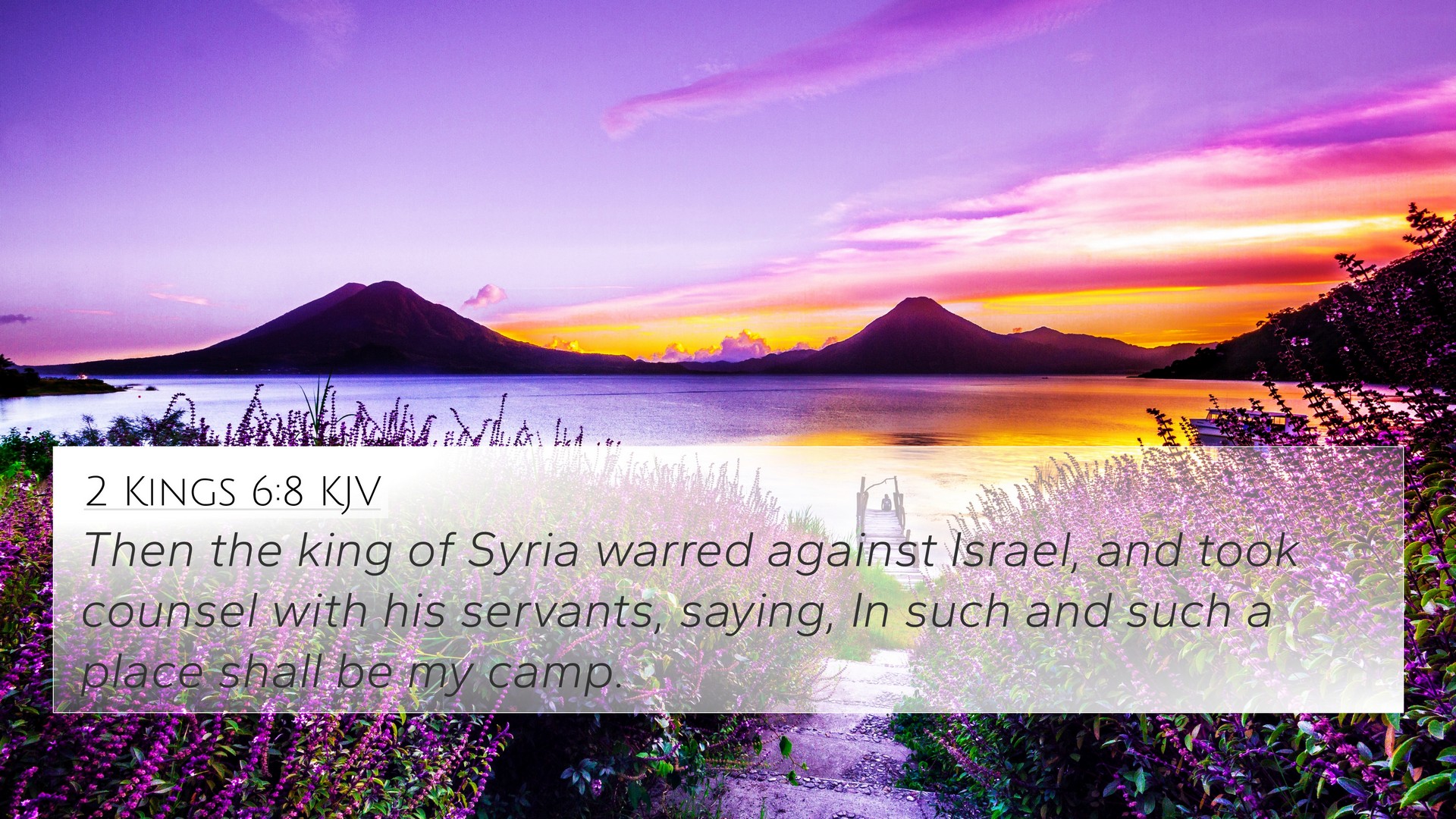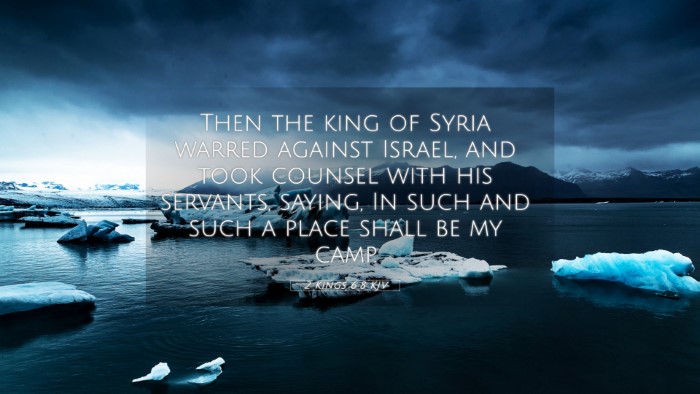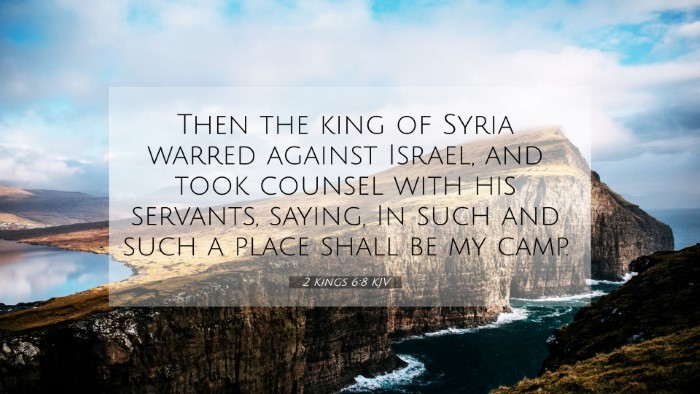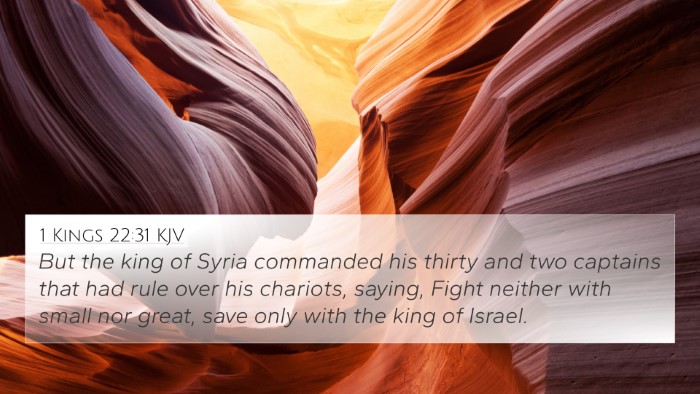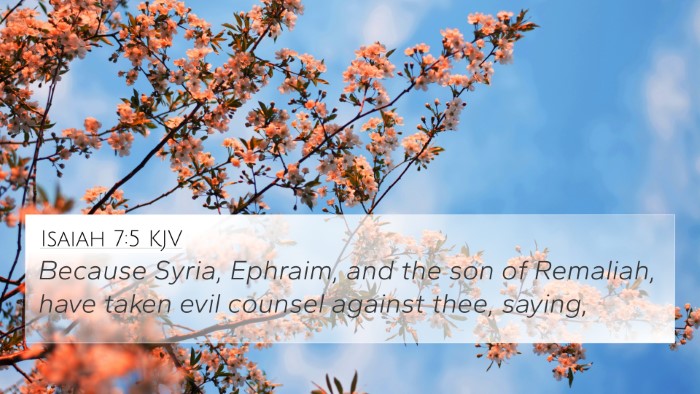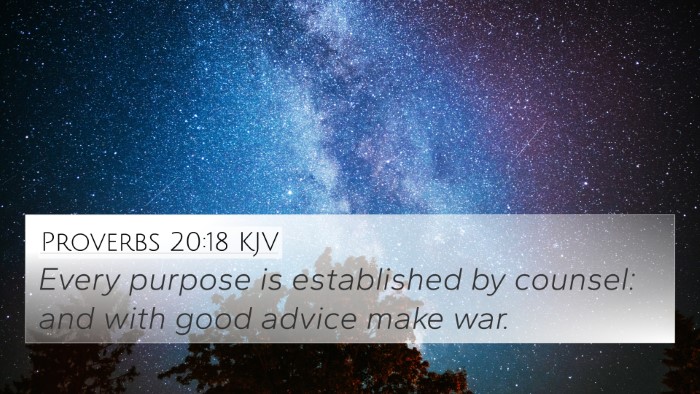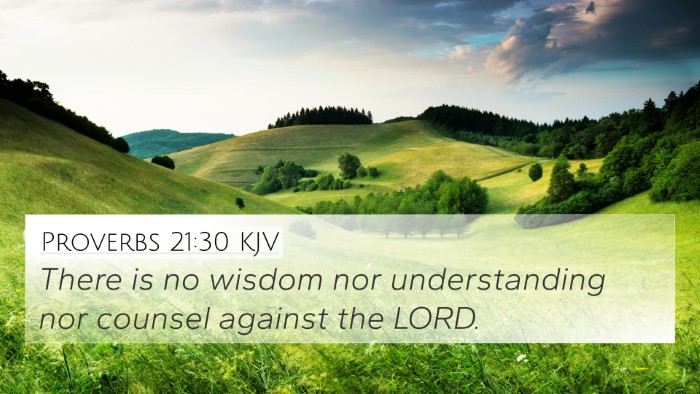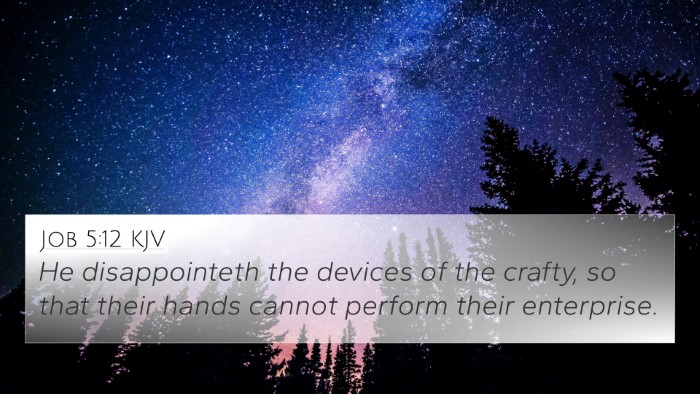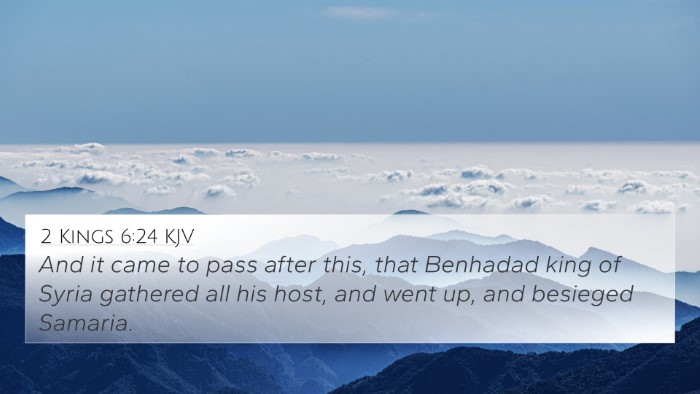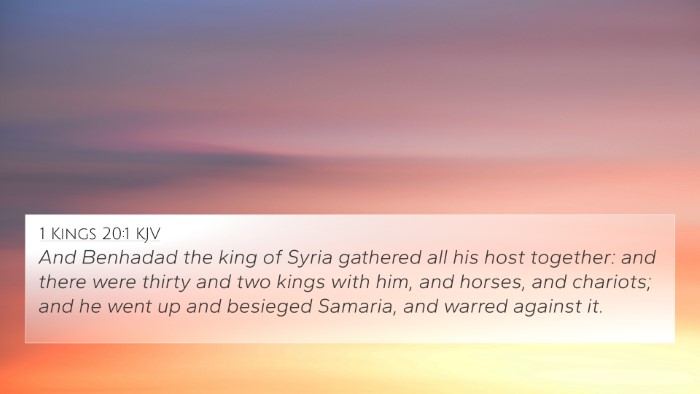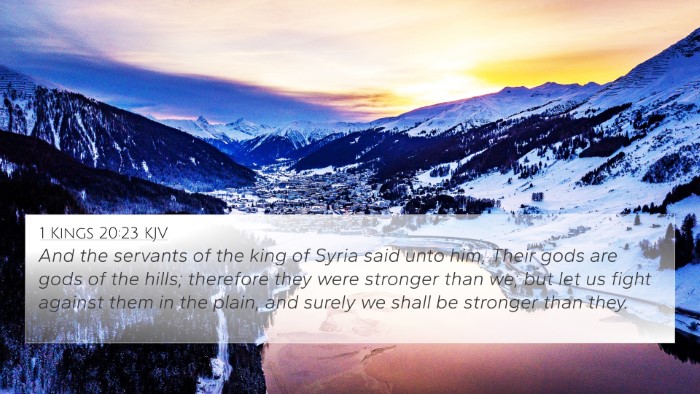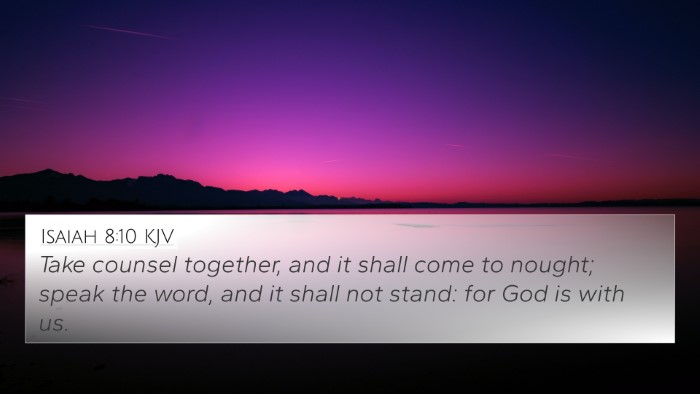Understanding 2 Kings 6:8
2 Kings 6:8: "Then the king of Syria warred against Israel, and took counsel with his servants, saying, In such and such a place shall be my camp."
Overview of the Verse
This verse sets the stage for a confrontation between the king of Syria and Israel. It highlights the strategic planning involved in warfare, where the Syrian king devises a plan to attack that reflects the political and military tensions of the time.
Commentary Insights
- Matthew Henry's Commentary: Henry suggests that the king’s strategies are foiled by divine intervention through the prophet Elisha. This emphasizes the belief that God protects His people and reveals future events through His prophets.
- Albert Barnes' Notes: Barnes points out that this illustrates the ongoing conflict between Israel and Syria and underlines the theme of God's sovereignty amidst human decisions. Through Elisha’s revelations, we see how God plays a role in the course of history.
- Adam Clarke's Commentary: Clarke emphasizes the futility of the Syrian king’s plans against an omniscient God. He notes that despite the king's cunning, God’s awareness of these plans through Elisha reveals a prophetic insight that is central to understanding God’s guidance.
Thematic Cross-References
This verse relates to various other scriptures that highlight similar themes of divine intervention, prophecy, and warfare.
- 1 Kings 13:1-2: A prophetic word against the altar at Bethel reveals God’s control over future events.
- 2 Kings 6:12: Elisha is identified as a prophet who reveals the king’s plans to those in Israel.
- Isaiah 54:17: "No weapon formed against you shall prosper." This verse reflects God's protection over Israel.
- Psalms 33:10-11: "The Lord brings the counsel of the nations to nothing..." emphasizes God's supreme authority over human plans.
- Proverbs 19:21: "There are many plans in a man's heart, Nevertheless the Lord's counsel—that will stand," points to divine wisdom over human strategy.
- Jeremiah 29:11: Indicates God's plans for His people, ensuring a future and hope amid adversity.
- Romans 8:31: "If God is for us, who can be against us?" aligns with the protection themes present in 2 Kings.
The Importance of Context
To fully understand 2 Kings 6:8, it is essential to consider the historical and cultural context of Israel’s relationship with neighboring nations. The geopolitical landscape of the time was marked by conflicts and alliances, and the roles of prophets were critical in guiding the nation through these turbulent times.
Applications for Today's Readers
This verse, while set in a historical narrative, speaks to modern audiences about the nature of God’s sovereignty and the futility of plans that are not aligned with His divine will. It encourages believers to seek God's guidance in their decision-making, particularly in the face of challenges.
Conclusion
Through examining 2 Kings 6:8 alongside relevant biblical texts and commentaries, readers can gain a deeper understanding of God’s overarching control in historical events as well as personal lives. The interconnectedness of scripture enriches our study and invites us to explore further the themes of divine revelation, protection, and the importance of heeding God’s voice through His messengers.
Tools for Further Study
For those interested in exploring the themes found in 2 Kings 6:8 through cross-referencing, consider utilizing:
- Bible concordance
- Cross-reference Bible study guides
- Bible chain reference tools
- Comprehensive Bible cross-reference materials
FAQs about Bible Cross-Referencing
How do I find cross-references for 2 Kings 6:8?
Use a Bible concordance or online Bible study tools that allow thematic searches or verse matches to identify connected verses.
What are common themes in the cross-references of this verse?
The themes revolve around divine protection, prophetic insight, and the futility of human plans against God’s will.
How can I use cross-referencing for deeper Bible study?
To delve deeper, select a theme or key word from 2 Kings 6:8 and use cross-reference tools to find additional scriptures that expand upon the initial text.
